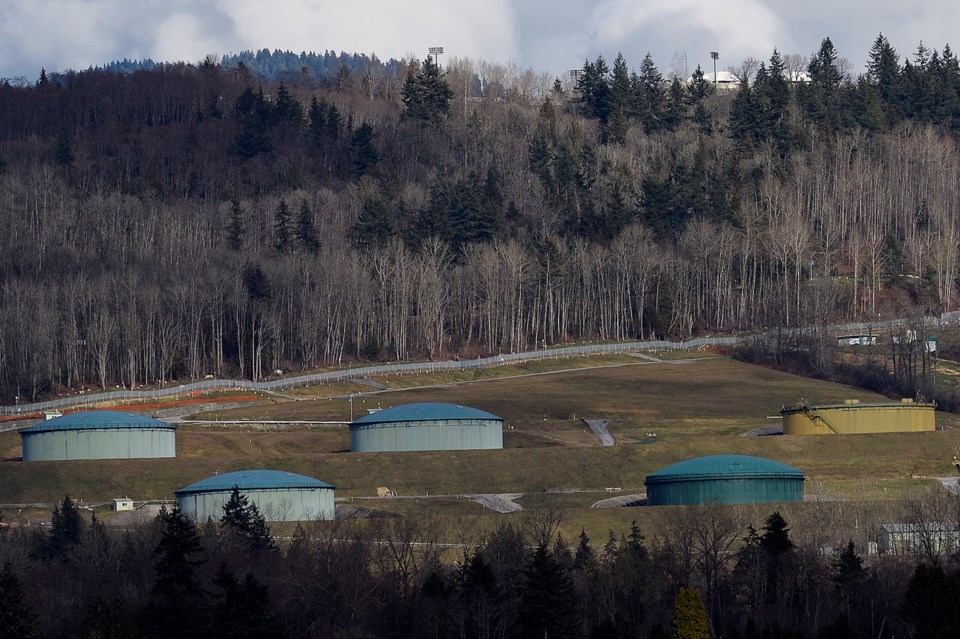The chief of the Kwikwetlem First Nation says there’s “nothing to be concerned about” after Trans Mountain pipeline opponents suggested “contaminated” soil was being dumped at an industrial park owned by his nation.
In recent weeks, dozens of trucks have left the pipeline’s Burnaby Mountain tank farm carrying soil that smells of oil, activist Jim Leyden told reporters at a Monday press conference.
“There was oil in the soil. There's no question that it was contaminated,” he said.
Leyden said he followed some of the trucks to the First Nation-owned Kwikwetlem Business Park in Port Coquitlam, where they dumped the soil. He said he was concerned contaminants would seep into the water table from there.
“It's not bad enough that they have all this trouble at Mordor,” he said, referring to the tank farm, “they want to carry it out into the community.”
But both the Kwikwetlem chief and Trans Mountain say the soil is being moved according to regulation.
Reached by phone, Chief Ed Hall said he was going into a meeting and unable to speak at length on the subject, but he did say that there was a remediation process in place and that there is “nothing to be concerned about.”
Kwikwetlem band manager Gail Sidhu did not respond to a request for comment by deadline.
In a statement, Trans Mountain said the soil is being removed “in order to accommodate new infrastructure.”
The company is currently preparing the site to build new tanks as part of the twinning of the existing pipeline that carries oil products from Edmonton.
Trans Mountain, a Crown corporation since the federal government bought the pipeline in 2018, said the soil removal process is part of its environmental protection plan (EPP), which has been approved by the Canada Energy Regulator (formerly known as the National Energy Board).
“The EPP explains how soils are tested, handled and confirms Trans Mountain approved soil handling methods and facilities to accommodate the different types of soils,” reads the statement.
Questions sent to B.C.’s Ministry of Environment and Climate Change were not answered by deadline.



